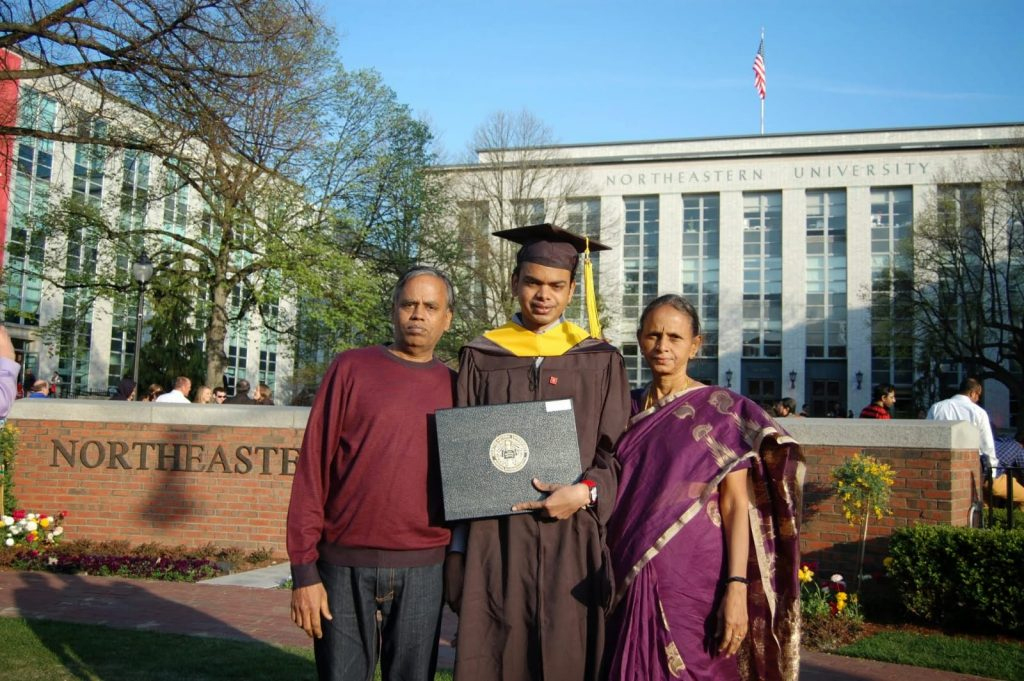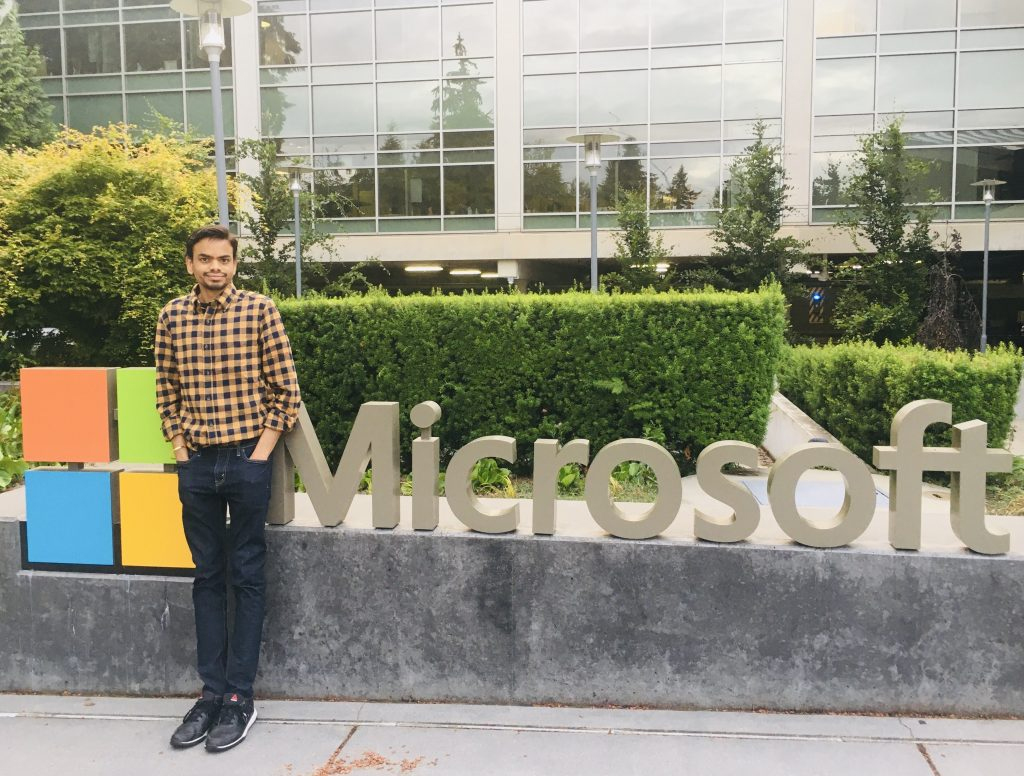Madhusudhan Kandadai: Act with a Purpose
I was born with a profound hearing loss in India. My parents did not receive a diagnosis for my hearing in 1989 when I was born, because they did not have access to proper diagnosis and infrastructure. They first noticed that my speech development was not on par with other kids my age in school, and upon frequent interactions with my teachers, they realized something was wrong. My father had me tested immediately at various hearing Institutes for evaluation and inputs.

At that age, I just did not understand the things evolving around me, however, I always enjoyed going outdoors and just responded to people speaking to me with a pleasing smile. I still remember the fun of endless audio and echo tests with marbles. Thanks to the technology, I got hearing aids for both ears and was then able to recognize my parents and siblings speech. I felt real happiness after hearing different sounds with headphones. It served my purpose – Hearing. That made my day.
Hearing aids do not cure hearing loss, but they do certainly help a great deal enabling me to have better access to sound. I realized life without hearing aids is much harder for me when it comes to communication and making a connection with others or vice-versa. Communication plays a pivotal role in human life – to learn, to understand, to respond, to react, to assimilate thoughts, to convey or even to teach others. Without connection, there is no proper communication. Without proper communication, a person feels excluded/left behind, I can get bored easily, resulting in a lack of motivation to learn. And, when that learning stops, it has a profound impact on one’s life. Without my hearing aids, I would miss the very many magical moments around, such as birds chirping every morning, the ringing of bells, my baby’s first cry, and more.
The hearing that I have through hearing aids contributes to how well I function in my daily life around family, friends, and colleagues. It is a basic sensory unit that helps me not only to take care of day-to-day activities but also to succeed in today’s competitive world. Interpreting it in human terms, it is a way of sending signals to the brain to perform certain actions such as thinking, becoming creative, and more importantly, making sure that family/friends gatherings become enjoyable. For many people, like me, hearing aids serve a greater purpose, opening up a whole new world of opportunities.
While growing up, it took so long to develop my language, speech, and social skills. No hearing aids allow one to hear perfectly. Despite the amplification being set exactly right at certain frequencies to offset the hearing loss, and to muffle unwanted sounds amplified by the devices, there is still an element of distortion due to the damage that exists within my hearing mechanism. People who can hear in the normal range do not understand this problem. I have to ask people to repeat things often, which is then followed by moments of frustration, pity, and angry faces when people have to repeat. I am lucky to have two siblings who are always by my side, helping me understand the topics during midterm exams and finals. They are my alarm clock and when the alarm rings, they alert me. As I grew up, I had to undergo humiliation when people around me were not familiar with what I needed, yet I buried the pain and feelings inside me. With hearing aids, I moved on with my life, but for a purpose to achieve at least a little more than expected.

My hearing disability (my term) never deterred my confidence and interest in exploring more in the field of science and technology. Fast forward to life after the completion of college: my siblings motivated me to pursue higher studies abroad (in the USA, the land of opportunities). Science and Engineering have always fascinated me. By setting discernable goals and having a relentless pursuit to achieve them, I headed to Northeastern University in Boston to pursue my Masters.
With all the love and compassion that I received from my parents throughout, I came all the way, defying the odds to pursue higher studies. I encountered mixed feelings with varied experiences on the long international flight journey for the first time. I could not understand the announcement made at the airport. I always made sure I sat next to the big screen to keep a tab on the flight timings. I shied away making connections with fellow travelers so I did not have to share that I didn’t always understand others.
I felt much better after obtaining technologically-advanced hearing aids and support from my friends and faculty in the US. This support taught me how to be independent. I still find it challenging to understand and follow the local accent here when others speak. People tend to speak too fast and I lose track of many words in the context, even with hearing aids. After researching the technology supports available, I learned about CART (Communication Access Realtime Translation), which transcribes and translates spoken text and sound into words. Through the CART support at graduate school at Northeastern University, I could follow the texts on the screen, and at the same time, I was able to follow the lectures.
With the technology support in place, I could follow recruiters and hiring managers with captions during interviews for internships or full-time employment. It was indeed a very lengthy ordeal I had to undergo when compared to others, but I kept calm and composed and kept motivating myself to further push along and keep trying. Thanks to the iPhone’s voice messaging technology which transcribes speech to text for me when someone leaves me a voice message, I can access voicemail. Using that information, I was able to connect with the interviewers who are reaching out to me about job opportunities. All went well until I was affected by WFR (Work Force Reduction) at my previous employment at HPE (Hewlett Packard Enterprise). I had to participate in frequent teleconferences with attorneys to seek input about my lay-off and my immigration status. I often felt low with rejections. I was out of a job for close to four months while helping my spouse pursue her higher studies. With patience, self-learning, and my family support, I accepted full-time employment with Dell.
The arrival of my daughter into our lives recently was the most memorable moment in my life. With a recent job switch to Microsoft, I continue to have the highest regard for helping people with disabilities and building the best products for everyone, and empowering every person and every organization on the planet to achieve more. I am thankful to my current employer who is so committed to furthering disability inclusion and accessibility, by adding built-in accessibility tools and features in various Microsoft technologies. For example, Microsoft Teams now offers speech-to-text support in real-time. This is a huge step forward to enable people who are deaf/hard of hearing to fully engage in communication and their social lives. We must collaborate to improve technology to make everyone’s life easier.
H&V Blog – November 10, 2020